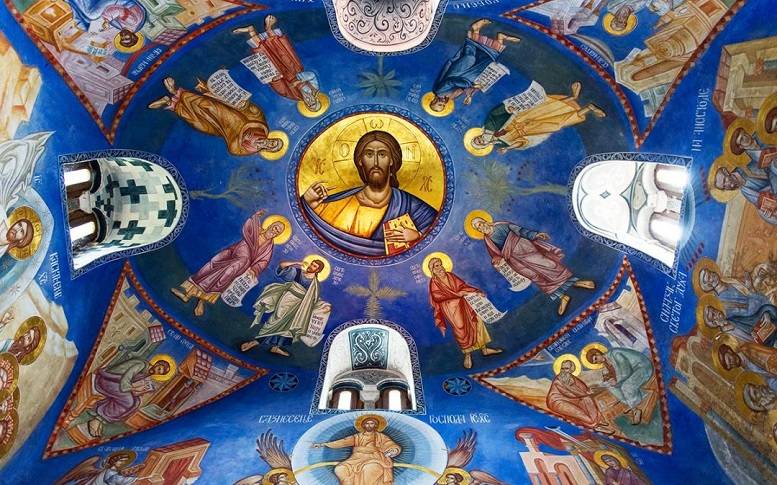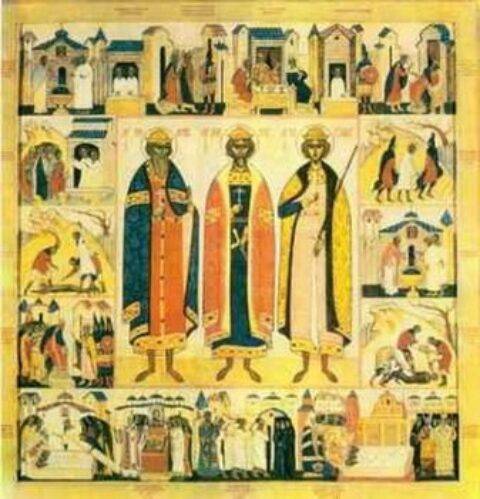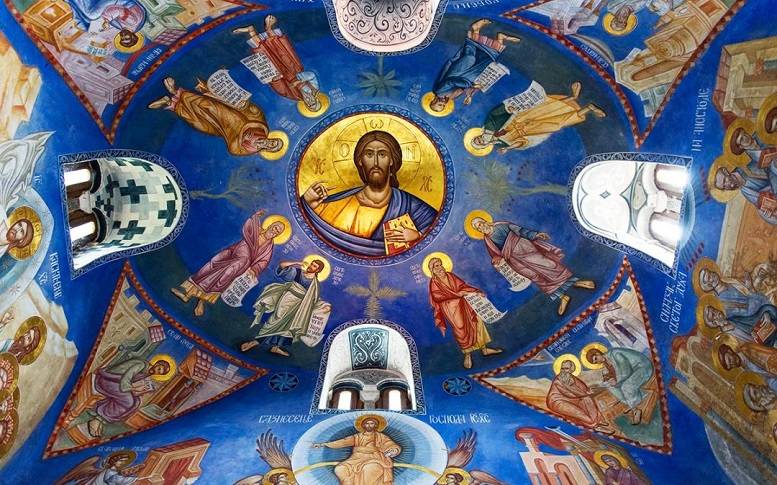
Archimandrite Panteleimon Manusakis - Crisis of the West
"How is it possible," asks the French Christian activist Jacques Ellul, at the beginning of his study with the consciously provocative title Undermining Christianity, "that the development of Christianity and the Church gave birth to a community, a civilization, a culture that is completely contrary to what we read in the Holy Scriptures?"
The civilization Ellul has in mind is of course Western. Therefore, speaking about the "crisis" of the West, perhaps we should start from this introductory question and the reality that it foreshadows, i.e. from the fact of the ablation of the Western world from its Christian beginnings? Isn't this distancing - according to others, transcending or opposition - arising from the ideological roots of the Western world and the cause of this "crisis"?
Unfortunately, we cannot agree with such an interpretation. The question raised by Ellul, although justified, remains naive. Western civilization does not cease to be a child of the Holy Scriptures even though, as is usually the case with the offspring of good families, it only slightly resembles its parents. The opposite point of view, which would confirm the fears of the French theoretician that the West as we know it today has nothing to do with its Christian beginnings, is so ahistorical that only ignorance could justify it.
What leads us to formulate such a point of view, which obviously denies historical reality? What has to do with our individualism, our capitalist prosperity that feeds it, our scientific dogmatism, the nihilistic postmodern art of our age, with the word of the Gospel?
We will dare to assert that the reciprocity of the aforementioned phenomena, which characterizes Western societies today, finds its assumptions in Christian preaching. They are not only not unrelated, but they also come together regardless of whether they represent a modification and falsification of the Christian cultural heritage. It is significant that no one can follow or even understand (these phenomena, see translation) without first realizing their connection with Christianity.
Our text will therefore gradually develop, but in a very concise way, by analyzing the phenomenon of individualism and its three expressions in economics, science and art (capitalism, rationalism, and especially postmodernist nihilism), in an attempt to point out their Christian roots.
The notion of individual personality is novel for the ancient world, as well as for what, contrary to the West, could be called the "East" (Middle East, Islam, Eastern religions), where collective structures dominate. In the previously listed cases, the solitary personality has no significance either because individualism is considered an inherent evil (Hinduism, Buddhism), or because its value depends on integration into some abstract whole (city-state, Islam). For classical antiquity, the individual is expendable. The famous Spartan "Apotetes", near Taiget, are just one example. Aristotle, in a philosophical form, will highlight the supremacy of the collective over the individual. A tangible and concrete example of this tendency could be the sculpture of classical Greece, one of the key characteristics of which is the lack of individual features (sculptures and statues of ancient Greek art always depict abstract ideals: athletes, gods, heroes, etc.). In contrast to this, the artistic expression of Western civilization finds its symbolic artistic expression in painting, (according to Hegel) the most individualized form of art.
Here, the reference to individuality is made because the critical (and then self-critical) possibility of a person's personality is focused on this property. The relationship between individuality and critical ability consists in the following: only an individual can commit and be held responsible for his actions and decisions. In order for someone to be judged (for his actions, decisions, and even for his opinion), he must be a person - we cannot judge a collective (nation, state, people, political order), because the responsibility that implies a call to judgment, a concept that is closely related to sin, disappears in the numbers of the masses. Only a unique subject (personality, what Kierkegaard calls single individual) can be the subject of trial, because only he - (as) one above the general - can be considered (responsible), and is responsible, i.e. the cause, in the narrowest sense of responsibility, of his procedures and decisions. The concept of sin, which is very important to Christianity, becomes meaningless if we do not assume an individual responsible for his actions. It is precisely the concept of sin that gives birth to the individual for the first time in history (and in this way also the talk about individual rights today). It would be interesting to contrast the concept of individuality with the ancient concept of hereditary sin, "curse", which does not denote an individual, but a "genus", Atreides, Lavdakis, etc. The responsibility of the tragic hero is collective, not individual. On the other hand, Judaism is the first to manifest the idea of individuality, which, however, remains unfinished. Every believer is saved as a member of Israel, the chosen people, whose prophetic word is often embodied through a single person (so all the characteristics of individuality are manifested in him)
PHOTOS
RELATED ARTICLES
.jpg)
Calendar for April 29 Holy Martyrs Agapia, Chionia and Irene
Holy Martyrs Agapia, Chionia and Irene. Sisters born in the vicinity of...

The show “Ask the Priest” on the occasion of the fifth anniversary of the repose of...
The show “Ask the Priest” on the occasion of the fifth anniversary...

Calendar for April 28 Holy Apostles Aristarchus, Pudus and Trophimus – Ash Monday
Saint Aristarchus, mentioned in the Acts of the Apostles (19:29) and the Holy...





.png)